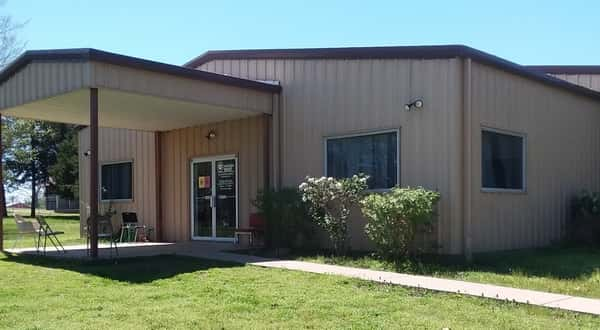
The history of OMART stretches back more than 30 years. A person close to the operation for a number of those years said the idea behind the facility was to give area courts somewhere to send people needing treatment for drug and alcohol addictions. But then came a change in the operation, one the community was not aware of.
In part one of a series of reports, Karen Hopper reports on the transition.
Listen:
Even though the facility’s main focus was treating addictions, about 10 years ago, OMART also began working with Arkansas Community Correction, the state agency supervising those on parole or probation, to provide transitional housing for prisoner parolees from across the state to aid them in reentering society.
The move to an all transitional housing unit began in 2017, when OMART lost a state contract to provide drug and alcohol treatment. People close to the operation say OMART would likely have closed had it not been for the state revenue stream to house parolees.
According to an ACC spokesman, the state paid OMART a varied daily rate depending on the classification of parolees and the length of time they were housed at the Gassville facility.
The agency paid $30 per-day for the first 45 days, and $20 a day from day 46-90. The rate for level three-or-four sex offenders jumped to $50 per-day for the first 60 days and $40 a day for the next 60.
In nine months of fiscal 2019, beginning July 1st last year, ACC paid OMART slightly more than $108,300.
With the new revenue stream, OMART moved forward. Because it had been involved in transitional housing at some level for years, no notice was required of the switch from being a part drug-and-alcohol rehabilitation center with some transitional beds to an all transitional facility.
But the “no notice” change rankled some Gassville city officials. The operational differences at OMART first caught the attention of Gassville Police Chief Tim Mayfield, who was seeing a different traffic pattern developing in and around the OMART facility on Snowball Drive.

Photo: OMART is located north of the Gassville water tower at 116 Snowball Drive.
Mayfield went to OMART seeking information on what sort of transformation — if any — was underway. But, he was turned away by an employee who told the chief he would have to go through ACC to obtain information.
The encounter led to a meeting with Gassville Mayor Jeff Braim, state and local law enforcement personnel and area legislators.
It was through these efforts, the city and community learned about the transition to a facility housing only parolees.
Heath Hogan, the chairman of the five-member OMART board of directors, has said the Gassville facility had been involved in transitional housing for so many years it was “grandfathered in,” and no public notice of operational changes at the facility was required.
The board chairman said while no rules or regulations were broken by the no notice conversion to all transitional beds, he recognized the situation could have been handled better with the public.
Hogan declined to be interviewed for this story.
In part two of our series, we’ll focus on the ongoing issues documented after the transition.
WebReadyTM Powered by WireReady® NSI










